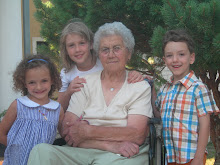I am not a research oncologist. Boy do I wish I was right about now. I have enormous respect for these folks. They volunteer to attempt to solve some of the most difficult challenges of our time, plugging onward even though the chances of success are small. Those trying to crack one of the very toughest nuts, namely pancreatic cancer, are a breed apart. Whereas other research oncologists are mustering all of their energies to push a very large rock just a few inches, I see those researching pancreatic cancer trying to push that same rock up a hill one inch at a time. To be honest, I don’t know that I have the fortitude to step into that void myself, even if I had the right education and credentials. For this reason I applaud each and every one of the doctors that do.
Instead I wonder about what CAN I do? Thank God - we live in an absolutely amazing and maddening country.
I just returned from my fourth Pancreatic cancer Advocacy Day in Washington D. C It is an annual event where folks from across the nation come to D.C. to urge Congress to take action in the fight against pancreatic cancer. The push during my first couple of years of attending was to get a bill passed that would put a plan in place and increase the research dollars that the National cancer Institute (a branch of the National Institute of Health) devotes to pancreatic cancer. “When the Recalcitrant Cancer Research Act was signed into law in January 2013, it was the culmination of five years of effort by the Pancreatic Cancer Action Network’s passionate advocates and volunteers—who sent 76,000 emails, made 14,000 calls to Congress and participated in 1,500 meetings.” Then came sequestration and the promised funds have never materialized. The fight in the years since has been to restore the planned funds.
The problem is that there is no early detection for pancreatic cancer – ala a mammogram or colonoscopy for breast and colon cancers. For most people diagnosed, like my Papa, diagnosis is a death sentence because it is already too late to do much about it. Which brings up the second problem – few treatment options (besides the Whipple surgery that I was able to have) that can save the life of a pancreatic cancer patient. The 5-year survival rate is an anemic 6% and has barely budged in the past 40 years. Survival rates for most cancers are, thankfully, increasing but while the incidence rate for pancreatic cancer is increasing survival rates are not appreciably. For this reason, pancreatic cancer is projected to be the second leading cancer killer of Americans by 2020. Given the potential genetic link in my family, this is an untenable situation for me and my babies.
This year, approximately 480 citizens from all 50 states and several U.S. territories came to ask Congress to make more funds available. This is an astounding show of force and the sea of purple walking the halls of Congress is a sight to behold. For me, seeing survivors from across the country year after year inspires hope. But hearing the stories of loved ones lives cut suddenly short by the tragedy of this disease is heart-wrenching. D.C. in all of its grandeur makes me proud to be an American and the opportunity to meet with my Senators and Representatives is a testament to the democratic ideals that our Founding Fathers intended for us. It is awesome. Democracy is not (only) about availing oneself of the right to vote every year or four. It is about bringing about the change in this nation that you desire by expressing yourself on the other 364 days of the year to the leaders we’ve elected to represent us.
There are two main arguments that our representatives offer against additional funding for research into the deadliest cancers. They are (1) that we can’t afford it, and (2) our government is already too large and should not be involved in this activity.
In my mind, both of these are purely ideological. The first argument denies the fact that Congress is making spending decisions like this every day. It is, after all, exactly what our elected leaders are paid to do. Besides, the “ask” for cancer research is negligible compared to so much else. If I understand the argument, we can afford tax cuts for corporations and those who are already wealthy in this country but not to help save lives and avoid suffering for all Americans. It is simply a matter of our priorities. The second argument denies the ample evidence that when government funds basic research, cancer survival rates increase (see breast cancer as a glorious example). We the people empower the government to the things that otherwise could not be achieved – like national defense, education, infrastructure, etc. Both lines of refusal are based on flawed logic if not outright lies. Meanwhile, people are dying. Please do not buy this bill of goods. Not for this cause that is of primary importance to me. Nor for your own cause. Advocate for yourself and those you love. Responsible citizenship means writing, calling and visiting our elected leaders. That is the beauty of this wonderful and maddening nation of ours. Embrace it!
Subscribe to:
Post Comments (Atom)


No comments:
Post a Comment